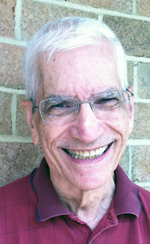By Joel H. Cohen

NEW YORK — We’ve come a long way from the time when Jewish garment workers and others who wanted to observe Shabbos were told on Friday, “If you don’t come in tomorrow, don’t bother coming in on Monday.”
Observance today is easier, thanks to such advances as the five-day work week, and the fact that major Jewish holidays are now school holidays in New York City and elsewhere.
But still, Jewish religious observance in a secular environment isn’t always a simple matter, if only for the fact that suspicions about the absentee’s sincerity sometimes surface.
At one job, I was able to be absent from work on Jewish holidays without question, but one year the second-in-command asked if I had seen a Jewish colleague in synagogue on Sukkoth. Fortunately, I had seen him. But being asked that question struck me as improper, and I honestly don’t know how I would have answered if he hadn’t been in shul.
Years ago, a neighbor of ours, a non-observant Jewish lawyer, made it a point to take off Rosh Hashanah and Yom Kippur from work, not because he wanted some uncharged vacation days, but so that bosses would not be able to point him out to colleagues who had taken the Holy Days off, and say ,”How come it was okay for him to come to work on your holidays, but you couldn’t?”
The confusion can start early. When my future wife, whose maiden name wasn’t particularly ethnic, was absent from grade school one Rosh Hashanah, a boy classmate asked the following day, “How come you took off the Jew holiday?” “Because I’m Jewish,” she explained. (To this day, she doesn’t think the boy’s remark was anti-Semitic, but simply due to his not being aware.)
Sometimes, a co-rellgionist can pose a challenge. A job interview for a reporting position on an English- language Jewish newspaper (not the San Diego Jewish World) seemed to be going well, until the editor asked, “How many days of Rosh Hashanah do you observe?” “Two,” I said surprised at the question. “Is that a problem?” “Well, no,” he answered, seemingly flustered, and then he went on to explain that the production date for that issue coincided with the second day. I didn’t get the job, and I certainly can’t attribute it it to the Rosh Hashanah-observance factor. But…
Sometimes it’s the traditions of other institutions that conflict, such as the weekly event during military basic training known as the “GI Party” a euphemism for scrubbing the barracks. The cleaning was scheduled for the same time as Friday night Jewish services, and this posed a major emotional conflict for a lot of Jewish soldiers: either participate in the cleaning and skip the services; or attend the services and be suspected of using a religious out to avoid the unpleasant barracks-cleaning. Different soldier arrived at different solutions for themselves.)
A memorable event related to Jewish observance took place during my 16-week U.S. Army basic training ages ago at Ft. Dix, New Jersey. Basic training extended over the High Holy days, and it was no problem for all Jewish soldiers to draw passes to go home for all three days. Then, one day in early December, “all Jewish troops” were ordered to report to the day room after the evening meal. My thought was that the order to report was “fair enough;” that we had to make up for the training and work details we’d missed while absent on the Jewish holidays. What was curious about the command, though, was that we were told to appear in our Class-A (dress-up) uniforms, hardly the outfit for demanding basic training work details
The answer was soon evident. We were ordered to board buses that would take us to a JCC in Philadelphia, for a Chanukah dance, headlined, in person, by Patti Page (“the singing rage,” now deceased).
It was a delightful sentence of military –or higher –‘ justice,’ meted out for our observance of the Holy Days.
*
Joel H. Cohen is a freelance writer based in New York. He may be contacted via joel.cohen@sdjewishworld.com
Joel H. Cohen is a freelance writer based in New York. He may be contacted via joel.cohen@sdjewishworld.com